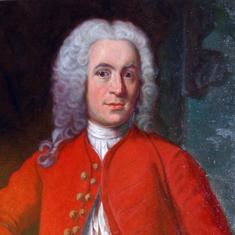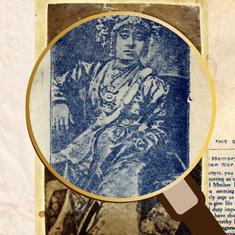When I learnt my dream of interviewing Annie Ernaux, the French writer who won the Nobel Prize for Literature in 2022, was coming true, I was on a train to Kolkata to visit my ailing 85-year-old mother. I decided to hasten my return to Delhi. It was an opportunity of a lifetime. I was deep into her books since the last few months, marvelling at how she unthreaded her “self” from social constraints and the bourgeois protocols of writing.
I was reading A Frozen Woman in the train, discovering the traits of Ernaux’s writing, her daring candour, her fluent sarcasm, her pithy expressions, and the dense lyricism of her early prose. It appeared she wrote exactly the way she thought. Exactitude is difficult to achieve in the slippery act of writing. It reminded me of her precursor, Marguerite Duras. I was also carrying I Remain in Darkness (a crisp, poignant memoir on her mother’s struggle with Alzheimer’s disease), which I wanted to reread. I was planning to write a journal on my mother’s dementia, inspired by Ernaux’s poignant book. Meanwhile, I prepared questions for the interview.
In her diary, Getting Lost, Ernaux mentions India and China as countries “whose ‘otherness’ is more radical” in terms of her own cultural imagination. That distance must have been bridged to some extent during her stay. She would be taking back glimpses and encounters she’s had in Delhi. As readers in India, we hope she writes on it in the future. It is always most valuable to see ourselves through prisms of difference that visitors from other places in the world introduce through their observations about us.
Reading Ernaux, one gets the impression she thinks with her eyes, with her touch. She’s aware of and alert to the material and sensuous nature of thinking. That distinguishes her from the overtly mentalist thinkers of the self (including thinkers from France). She is a writing self, who distinguishes that self with clarity from the self that lives a life. Life is one thing, writing another. Ernaux lives the contradictions in that mysterious encounter between pen and paper. Writing balances the imbalances of life. In this interview, she explains her craft and some of the central themes of her writing, bringing to light hitherto unexplored corners of her work.
The Nobel laureate spoke to Scroll during her visit to India in February 2023. Excerpts from the conversation.
Gabriel García Márquez in his interview with Plinio Apuleyo Mendoza suggested that the success of Cartesian thought in France was probably a reason why his novels didn’t do very well there, unlike the rest of the world. I find it a farfetched argument. France is also the home of Marcel Proust and André Breton. Even though you engage with philosophy, would you say your narrative spirit is closer to literary figures like Proust, Breton, and Marguerite Duras? Your thinking is influenced by Sartre’s general idea of the other as a negative figure, and de Beauvoir’s more specific idea of how men other women, creating a double bind (especially for women): how to see oneself within and outside the (male) other’s gaze. Your writing does not offer any ideal, ideational, or ideological corrective, but presents the real, conflicted nature of the problem. I feel you don’t just lay bare the conflicts between philosophy and literature, but between philosophy and literature (or writing as such) on the one hand, and life on the other. You write in Getting Lost: “Truth can only rule in writing, not in life.” Your writing reveals this contradiction.
I don’t really write based on a particular philosophy. The desire for me to write did not come from any philosophy, or by reading philosophy. It came from reading, for example, Sartre’s Nausea. The desire to write came from reading the literary works of Sartre and not his philosophical works. Even though, I consider myself Sartrean in some way. Because I do believe that our situation and circumstances are indeed the basis of our being in the world. And when I wanted to start, I wasn’t really trying to develop any sort of philosophy. And when you ask me about being Cartesian, then I would say no, I am mostly on the side of Proust and Marguerite Duras.
[Here I clarify (unsure of the import of the French interpretation of my question) that I precisely meant (as evident in my question) that she belonged to France’s literary tradition and not the Cartesian. To that, Ernaux adds: “Of course, my generation, we were raised, if I could use the word, or marked by the philosophy of Descartes and Kant. Not to forget, Kierkegaard was also important for this generation.”]
Social life is not really the plane where one seeks truth. But when it comes to life and language, we know that the social aspect is more predominant. Truth-telling is difficult, and comes with a compromise. In life, we are always in the present. Truth is something that cannot be achieved through the media. It can only be seen through distance, with respect to time. Thus, writing becomes a means where I seek not truth, but what’s real. It becomes a place to express that real for myself.

Your recently published works in translation, Simple Passion and Getting Lost, written to record the same event in your life in radically different modes, reminded me heavily of the section “Waiting” in Roland Barthes’s Lover’s Discourse. For Barthes, via the English psychiatrist Donald Winnicott, waiting is the proof of love. Waiting is an enchanted game one plays with oneself in love. The proof of the lover is in the waiting. Let us take three examples from Getting Lost:
- “11 pm. At around four o’clock, waiting for him, I felt a very deep fear. Of seeing him again, and therefore adding an afternoon which, by dint of accumulation, will surely lead us to the point of saturation and the absence of desire.”
- “From eight to ten o’clock, utter darkness: he doesn’t call and I wait, end of story. And at this moment, unlike Proust, I do not believe it would take very little, just a tiny movement of the will, to pass through suffering”.
- “8.30 pm. What does it mean to love a man? His being there, making love with him, dreaming; and he returns and makes love. It’s all just waiting.”
The language of waiting is riddled with paradoxes: You register the time of waiting, but the time of waiting can’t be measured. Desiring the lover’s presence, you magnify his absence. Waiting is selfish and yet, most vulnerable. Would you say waiting alone connects desire, love and death? That it signifies our lonely being, our being lonely? Do we wait in the fear of abandonment, in our distrust of who we claim to love?
To your question, whether waiting alone connects love, desire and death: Well, waiting is something that constitutes the foundation of passion. It’s where we feel the hope of something that exceeds the person you desire. It is a feeling that is mortal at its core. While we are waiting for love, there is a concentration, a condensation of everything that constitutes human life and its hopes. This waiting will eventually end in death. All of this represents the drama of human life, of all that defines us as humans, and in a very scary way.
In western society, even if we hide it very well, we are really marked by death, much more than what it is in India. And coming to your next question, that it (waiting) signifies our lonely being and being lonely, and do we wait in the fear of abandonment: For me this has to do with the condition of writing [laughs softly] and the human condition. We are born alone, we die alone. Being lonely is generally seen as something that comes from heartbreak. But it goes back to childhood. Between the two [the aloneness of birth and death], we seek and expect a lot from others around us. And that is a good thing, after all. For me, it is not about fear of abandonment and distrust. It is something that comes from childhood experiences. That is how I feel. It is not that this fear resurges with respect to other love stories, or simply other stories, in life. It is not related to the person, but to what the person has lived through, which goes back to childhood experiences.
You say there is a need for writing to be an “untenable enterprise” (A Girl’s Story). There is an abyss between writing and life that writing cannot bridge. The act of writing does not bring any resolution to the conflicts of experience. You write in A Girl’s Story: “But what is the point of writing if not to unearth things, or even just one thing that cannot be reduced to any kind of psychological or sociological explanation and is not the result of a preconceived idea or demonstration but a narrative: something that emerges from the creases when a story is unfolded”. Writing emerges from within the folds of the unfolding story, where a vulnerable being leaps out of its hiding place. This hiding place is full of fear, guilt and shame that is socially constructed and administered. And yet you add a note of caution to see writing as a liberating act. Writing can’t set us free. Would you say writing transports and abandons us to a new place, the way love does? Would you say, despite all that it doesn’t offer, writing offers us newness?
Writing is also compared with the experience of love. In the same way, the specificity of writing comes from the fact that it exceeds all that can be compared to human existence: The idea of being, ideas of that being, and stories of being. It can’t be compared. The result of this writing is also something that escapes the one who writes. What I have experienced is unique. It cannot be compared to anyone else’s life experience. For me, life is much more tragic than writing. You speak of liberation. I don’t see writing as liberation. But it can bring a resolution to something, to some problem in life. Writing helps to understand certain problem, but it doesn’t lead to liberation.
[I clarify at this point that I had emphasised in my question that her idea of writing does not see writing as liberation (perhaps a wrong import conveyed in the interpretation), but I feel it introduces newness. To this, Ernaux responds: “The value of a text is indeed the newness it brings to your vision of viewing things.” She then looks at me and says laughingly, “You don’t seem to be convinced!”]
You have described your writing in an interview as “an ethnology of myself”. Ethnology involves the body. If the self is a construct, the body is its material basis. Your writing probes the two-way, reversible, but incongruent relationship between self and body. This relationship is a political one in the way the world disrupts and distorts our experience and understanding of self and body. You have articulated in many ways how shame’s shadow falls on life and writing. Be it A Girl’s Story or Getting Lost, your writing is a quest to un-shame language from the disciplinary protocols of self-expression. No reclaiming or recovery of self and body is possible without this un-shaming.
The point is, even though the charge of shame is borne by the self, it is (especially in the case of women) levelled on the body. It is in the name of the body. In A Frozen Woman, you say how women were inspired to believe in “the mortification of the body”. The fact that “women sacrificed their lives” meant sacrificing their bodies. Anyone who resisted this economy of sacrifice was prone to being shamed. You have countered the discourse of gender and class shaming by recording the elemental habits of your parents, and shattered the bourgeois literary style of writing on sex. Would you say you have introduced a uniquely blunt language to speak for the body in literature that shocks both by its power and its frank vulnerability?
The first, not necessarily the first maybe, but one of the important sources of my writing is the reality of the body, notably, of a woman’s heart. In literature, we see that it is something that has been masked even by women writers themselves. So in the first paragraph of the first book, it is about a girl’s body that undergoes abortion, and the sensation she feels, an experience that cannot be reduced to the way men depict their experiences in literature. In my writing, I explore this shame, this shame that comes from the body. Because when you are in this situation [needing an abortion], it is your body which is in a place, and you would want the body to either go away, to disappear, because you don’t want to be in that place physically, where you are. By speaking about this, you have brought up one of the characteristics of my writing.

Your writing reminds us of the power of “voice” in literature. In your writing, the voice is intimate, thoughtful, detached, and defiant. You also speak of yourself in third-person, as “she”, in A Girl’s Story. You defy correctness: “I am my father’s daughter. Oedipus? I couldn’t care less.” [A Frozen Woman] You also introduce vulnerability, as guilt in relation to your mother in I Remain in Darkness, and as desire in relation to Mr S in Getting Lost. Do you think subversive writing derives its power, paradoxically, from submission, which is also an act of the will? [I add here, a cross-cultural reference to Amir Khusro’s idea of desire as wilful submission.] Would you call this – not in life, but in writing – vulnerable power? Is this a way for writing (as you say in A Girl’s Story) to “atone for its power...out of an imaginary terror of consequences”?
No, I don’t really write to be subversive. I write to unfold, to unravel things, if you insist. Can we call this subversive? What submission are we referring to, submission to what?
[Ernaux laughs, telling me (in English), “It is a question for you!” I clarify, I am asking about submission in love. Whether she thinks it is an act of the will.]
As I try to think on answering your question, I am thinking in terms of two different books, Simple Passion and A Girl’s Story. In these texts, we do find a kind of submission. But the submission occurs in different ways. For example, in A Girl’s Story, the submission is felt as the acceptance of submission in itself. In Simple Passion, it is the immediate transformation of choice. The person chooses, I choose to be in this longing, which is different from what happens in the girl’s memory.
As I am answering these questions, I think I need to go for psychoanalysis with respect to my books [laughs heartily]. It is complicated, and something I am not keen on doing. [I add with a smile, she has nothing to learn from the psychoanalyst, but the psychoanalyst might learn something from her. She laughs again.]
At this point, as the interview comes to a close, Ernaux asks me with a smile (in English), “So, what else?”
I think she must be tired. I ask her the obvious and simple question, “How do you feel being in India for the first time?” She says, “It’s a pleasure, and a discovery.”

I request her to sign the copies of her books I had got. She smiles and says, “I am not used to answering philosophical questions on desire, submission...”
Ernaux writes in my copy of The Years: “To you, Manash, who has pushed me towards the mysterious sources of my writing.”
Interviewer’s acknowledgements: I thank the French Institute for facilitating this interview with Annie Ernaux that took place in the King George V Boardroom, Claridges Hotel, New Delhi, on February 26, 2023. I am grateful to Manmeet Singh for translating Ernaux’s French responses into English. I also wish to thank Erum Dogra for bringing to light couple of things in Ernaux’s responses that were lost in translation. Thanks are also due to Urvi for translating Ernaux’s note to me in the copy of The Years. Thanks to Richa for helping with the recording of the interview.
Manash Firaq Bhattacharjee is the author of Nehru and the Spirit of India (Penguin Viking, 2022), The Town Slowly Empties: On Life and Culture during Lockdown (Copper Coin, 2021), and Looking for the Nation: Towards Another Idea of India (Speaking Tiger, 2018).










